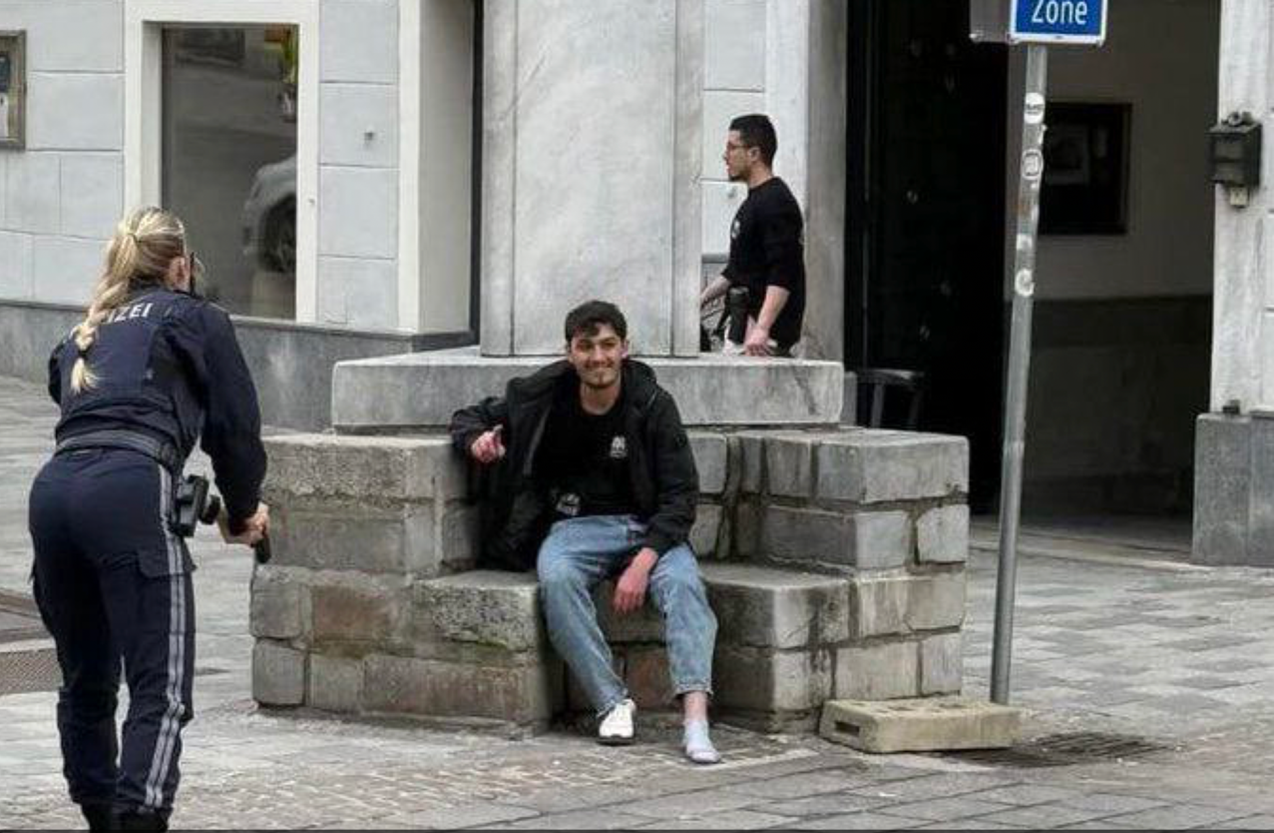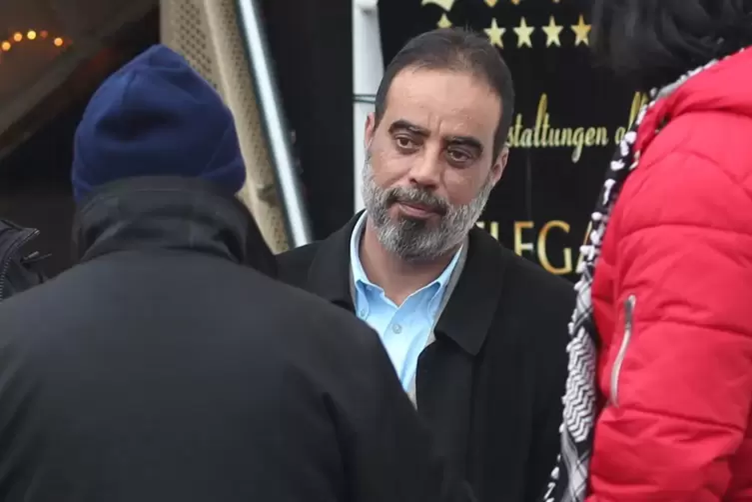by Stefano Piazza

Yesterday in Villach, about 350 kilometers south of Vienna, near the border with Italy and Slovenia, a Syrian asylum seeker attacked a crowd in the old town. The result was tragic: a 14-year-old boy died, while four other people were injured, some seriously. The attack happened suddenly, just before 4:00 p.m., near the main square and the bridge over the Drava River. « It looked like a scene from a horror movie, said one witness, that man started to lash out wildly, targeting a group of young people».
Among the injured, the most seriously injured adult is 32 years old, while the others are all students. The dynamics of the attack have been reconstructed by the Austrian police. ‘In many years of service, I have never seen anything like it’, said spokesman Rainer Dionisio, ‘only chance prevented a massacre’. The attacker, who had a valid residence permit and no previous convictions, was stopped by a 42-year-old Syrian delivery man. Alaaeddin Alhalabi, 42, didn’t hesitate for a second: “I saw a person lying on the ground, a man attacking other passers-by. I didn’t think twice and approached him,” said the courageous Syrian, who probably saved the lives of several people in Villach. Witnessing the scene from his car, he had the presence of mind to run over the man, managing to disarm him and wounding him in a way that was not life-threatening. The State Office for Internal Security and Counter-Extremism took charge of the investigation into the Villach attack and what emerged was that the man had become radicalized on social media, and on TikTok, where he followed videos of extremist Islamist preachers. In the home of 23-year-old Syrian Ahmad G., the police revealed that an ISIS flag had also been found. It also emerged that the young man was not under surveillance by the security services, even though the government in Vienna is keeping at least 150 potential terrorists under observation.
Islamic extremism was behind the attack last Thursday in Munich where the perpetrator, Farhad Noori, a 24-year-old Afghan citizen, drove his car into a crowd, killing a mother and her child and injuring 39 people. After arriving in Germany via Calabria (Italy), he told the police he had acted for “religious reasons”. These two episodes, both committed by immigrants, are inflaming the political debate on the eve of the elections in Berlin and complicating the negotiations for the formation of a new government in Vienna. The radical right, which is growing strongly and is determined to obtain the Austrian Ministry of the Interior, has attacked both national and European migration policies, calling for “border fortifications”. On December 9, Austria announced its intention to expel Syrian migrants after the fall of dictator Bashar al Assad: « I have instructed the ministry to prepare an orderly program of repatriation and deportation to Syria»,” Interior Minister Gerhard Karner told Austrian media, without clarifying which migration statuses would be targeted. According to the country’s statistical office, there are about 100,000 Syrians living in Austria.
Islamic extremism has long been a serious problem in Austria and there have been violent episodes, such as the terrorist attack on November 2, 2020, in Vienna, where Kujtim Fejzulai (20 years old), born in Vienna and with dual Austrian and Macedonian citizenship, killed (before being killed himself) with Kalashnikovs, killing five people and injuring 17, including a police officer. ISIS claimed responsibility for the attack, publishing Fejzulai’s will and claim on their channels. Fejzulai was part of a group of Islamic extremists known as the “Lions of the Balkans” that operates in the Balkans, Germany, Austria and Switzerland. In recent years, Salafist doctrine has spread in Austria and, according to a report by the Documentation Center for Political Islam (DPI) published on July 17, 2024, “a spread of Salafists and their ideology in Austria is expected. A significant contribution in this sense would be made by the “hipster Salafists”, who, among other things, present themselves as modern and proselytize on social media.

Preaching groups as a prelude to extremism
In Austria, it is mainly the two groups “Fitrah” and “Iman” that are particularly active in missionary work. Unlike the “LIES i!” movement of a few years ago, which mainly relied on proselytizing on the street and distributing the Koran (which was banned in Germany in 2016), the two groups rely on the Internet: in videos, for example, Christians and atheists are stopped on the street and questioned about their knowledge of Islam. According to Lisa Fellhofer, director of the documentation center, “The two groups are spreading a retrograde vision of society, for example with regard to gender equality and the treatment of certain minorities and can act as a gateway to a radical environment”. The groups “Fitrah” and “Iman” are part of a large transnational network and have ties to the Islamic Education and Research Academy, a missionary organization based in the UK. They are also in contact with well-known Salafi activists in Germany, including the convert Marcel Krass and the Salafi preacher Stef Keris. In the past, Salafi missionary movements, thanks to their international contacts, have been a first step in the radicalization of individuals towards jihadist militancy.
For example, the “LIES!” campaign and the association that supported it, “The True Religion”, had links with members of the jihadist scene, facilitating the recruitment of at least 160 young activists directed towards “Siraq”. After the group was banned, its founder, Ibrahim Abou Nagie, a Palestinian with a German passport, chose to keep a low profile and now lives between Malaysia, Germany and Brazil, where he has started a large campaign to convert people to Islam. To return to Austria, another important aspect is the political influence exerted by Islamic third countries. For example, the Milli Görüs movement, classified as “anti-democratic” by the German Federal Office for the Protection of the Constitution, represents the second largest association of mosques in Austria, together with the Islamic Federation, after the ATIB, also of Turkish origin. Although Milli Görüs operates independently in Europe, there is considerable influence coming from Turkey.


